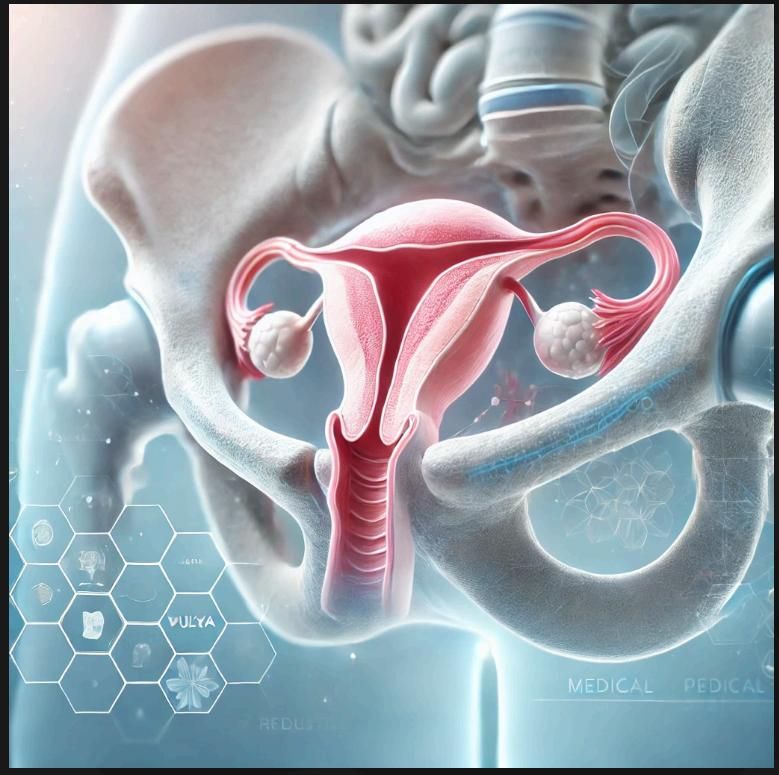Pelvic Health Awareness Month: Why Pelvic Health Matters to Women
The Latest in Robotic Gynecologic Surgery: A Comprehensive Guide

Introduction: Embracing Technological Advances in Women's Health
The field of gynecologic surgery has been revolutionized by the introduction of robotic systems, providing new horizons in patient care and surgical precision. In this comprehensive guide, we'll explore the transformative power of robotic surgery in gynecology, as exemplified by the expertise of Dr. Hema Jonnalagadda at Advocare Montgomery Gynecology.
The Robotic Revolution in Gynecologic Surgery
Robotic gynecologic surgery, particularly the utilization of the da Vinci Robotic System, marks a significant leap forward from traditional surgical methods. This minimally invasive technique allows for unparalleled precision, flexibility, and control. The robotic 'arms' are equipped with surgical instruments and a high-definition 3D camera, granting surgeons like Dr. Jonnalagadda the ability to perform complex procedures with enhanced visibility and dexterity.The body content of your post goes here. To edit this text, click on it and delete this default text and start typing your own or paste your own from a different source.
Advantages Over Traditional Techniques
Robotic surgery in gynecology offers numerous advantages:
● Precision: The robot's 'hands' can rotate far more than the human wrist, allowing for extreme precision.
● Minimal Invasion: Small incisions mean less trauma to the body and reduced scar tissue.
● Reduced Pain and Quicker Recovery: Patients often experience less pain post-surgery and a faster return to daily activities.
● Decreased Blood Loss: Precision instruments lead to less bleeding.
● Lower Infection Risk: Smaller incisions reduce exposure and infection risks.
Patient Journey: Before Robotic Surgery
Before surgery, patients will undergo a thorough consultation process with Dr. Jonnalagadda. This includes a complete review of medical history, a physical examination, and discussions about the benefits and risks associated with robotic surgery. Patients receive detailed instructions on how to prepare for the operation, including dietary restrictions and medication management.
During the Procedure
On the day of surgery, patients are cared for by a team of specialists trained in robotic procedures. The surgeon controls the robotic system from a console in the operating room, performing the surgery with extraordinary precision. The procedure is typically quicker than traditional surgery, and the patient is closely monitored throughout.
Recovery and Aftercare
The recovery process begins immediately after surgery. Patients may notice less postoperative pain and can often return home the same day or after a short hospital stay. Dr. Jonnalagadda's team provides comprehensive aftercare instructions and schedules follow-up appointments to monitor the patient's recovery, ensuring a smooth transition back to health.
Making an Informed Decision
When faced with the prospect of surgery, choosing the right method is paramount. Robotic surgery, a progressive option in gynecologic care, offers many benefits but may not be suitable for everyone. Dr. Hema Jonnalagadda of Advocare Montgomery Gynecology understands this deeply personal and pivotal healthcare decision. She ensures that every patient is given the comprehensive information needed to make an informed choice about their surgical care.

Personalized Consultations: A Step Towards Tailored Care
Dr. Jonnalagadda believes in the power of personalized care. During consultations, she engages in open dialogue with patients, discussing their health concerns, surgical options, and what robotic surgery entails. These sessions are designed to understand a patient’s medical history, lifestyle, and personal health goals.
Robotic Surgery: A Closer Look
Robotic surgery is not a one-size-fits-all solution. It's imperative to evaluate each case individually. Dr. Jonnalagadda considers factors such as the complexity of the condition, the patient's anatomy, and the potential benefits of using robotic assistance. With her expertise, she can discern which procedures can be enhanced by robotic technology, often resulting in less pain and quicker recovery for the patient.

The da Vinci Robotic System: Precision and Excellence
Advocare Montgomery Gynecology employs the da Vinci Robotic System, a tool that exemplifies the pinnacle of surgical precision and control. Dr. Jonnalagadda, skilled in the nuances of this system, can perform surgeries with greater accuracy, which is particularly advantageous for complex procedures. This advanced technology is a testament to the clinic’s commitment to offering cutting-edge solutions for women’s health issues.
Collaborative Decision Making
Dr. Jonnalagadda collaborates with patients in the decision-making process. She ensures that they understand the risks, benefits, and potential outcomes of robotic surgery. This approach not only empowers patients but also builds a foundation of trust and confidence in the care they receive.
Conclusion: Embracing the Future of Gynecological Surgery
The adoption of robotic surgery at Advocare Montgomery Gynecology signifies a leap into a new era of healthcare. It's an era where advanced technology meets compassionate, patient-focused care. Dr. Jonnalagadda's dedication to her patients is reflected in her commitment to providing the most sophisticated, minimally invasive surgical options available today.
Call Us
Are you exploring your options for gynecologic surgery? Take the opportunity to discuss the innovative solutions available at Advocare Montgomery Gynecology.
Dr. Hema Jonnalagadda is here to guide you through every step of your healthcare journey. Contact us at +1 215-444-3411 to schedule a comprehensive consultation or visit our clinic at 115 Plymouth Rd Suite#5, Plymouth Meeting, PA 19462, United States, for personalized care that aligns with your health aspirations.











